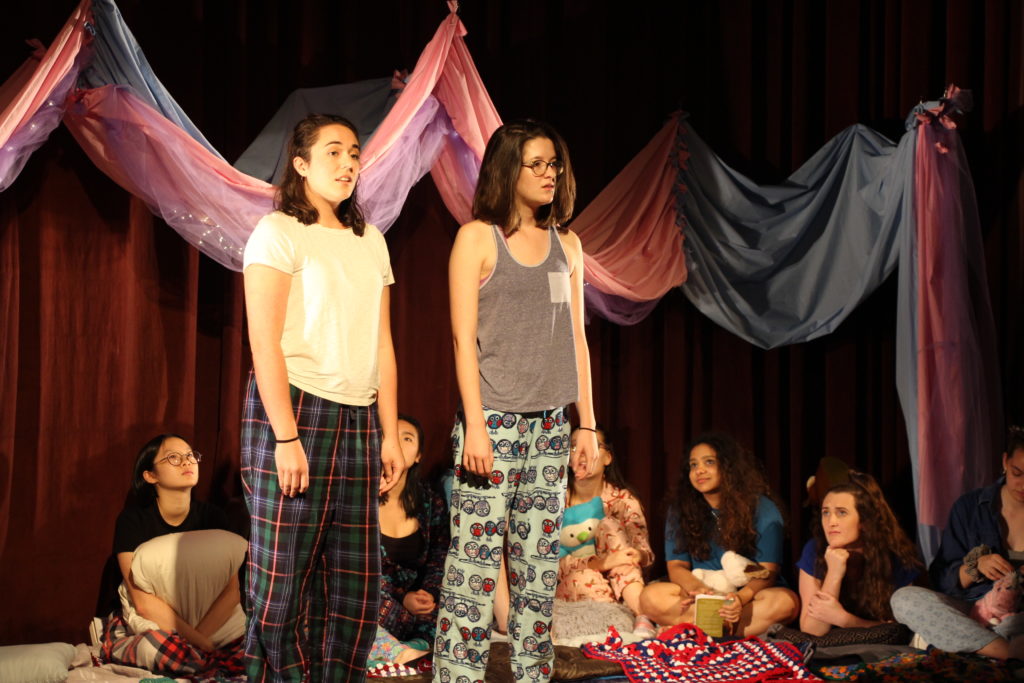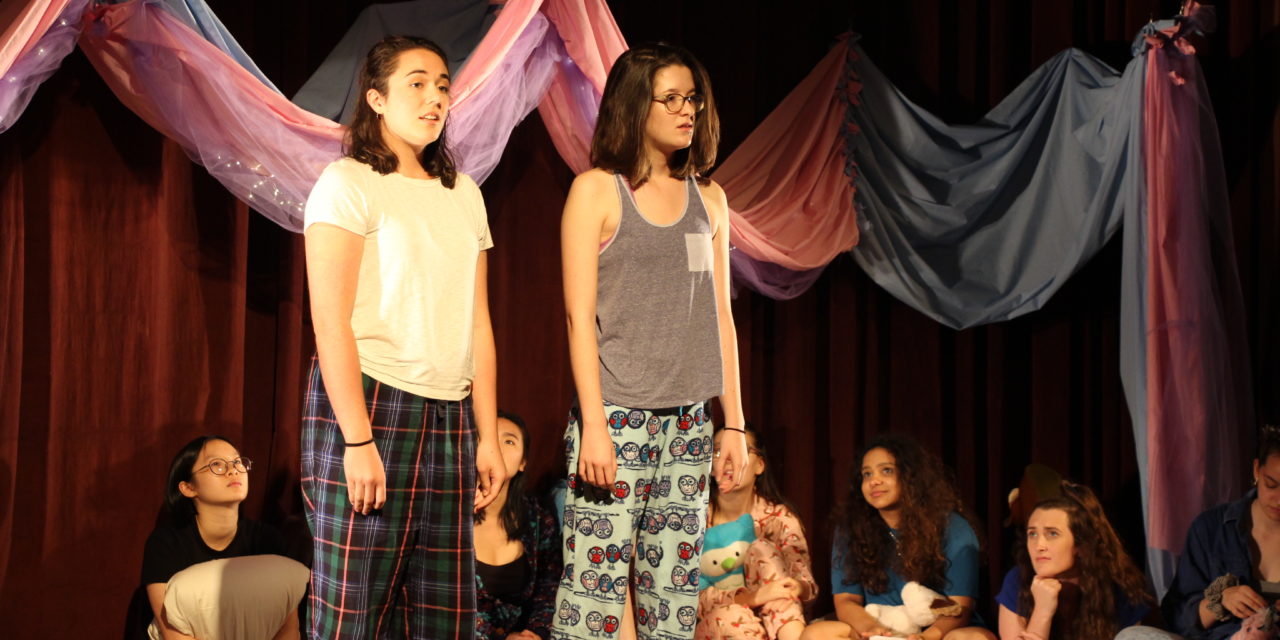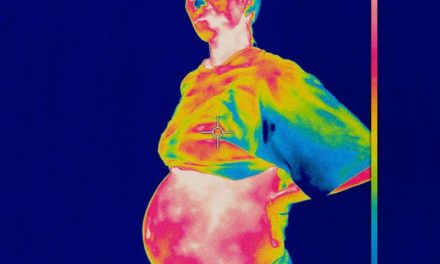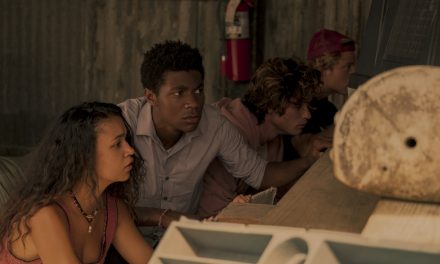
Noyonika Parulekar /Contributing
A group of young girls sit on the Harland Cinema stage in their pajamas, clearly at a sleepover. They chat, read books and innocently braid hair, oblivious to the audience members filtering in to see a performance of “I Am an Emotional Creature.” Their appearance is deceptively simple: already the performers are purposely blurring the lines between themselves and their characters. “I Am an Emotional Creature,” directed by Franny Parent (18Ox, 20C), communicates how the true lives of young girls often conflict with people’s perceptions of them, challenging stereotypes about women while fostering an acceptance of emotionality that is too often demeaned as feminine. Instead, “Emotional Creature” embraces a feminism of free expression.
Emory’s moving production of Eve Ensler’s “I Am an Emotional Creature” was presented by the Center for Women and Feminists in Action and performed by Dooley’s Players on Oct. 4 and 5. The play uses the format of 28 short presentations — the majority of which are monologues — to share a wide variety of experiences. Each expression is deeply personal and distinct. The characters themselves don’t always know what they think, which is part of the beauty. “Emotional Creature” covers topics from popularity and authenticity to limitations placed on female expression to sexual assault and abuse. The performers play young girls telling the audience about their most personal experiences. What goes on in a young girl’s mind? More than they’re given credit for is Ensler’s resounding answer.
This production is exceptionally moving thanks to the 18 talented performers in the show, each full of passion. While every piece was earnest and energetic, several in particular stood out. Twisha Dimri (23C) got the show off to an inspiring start with her character’s careful, and at times humorous, musings about the cultural expectations placed on women in “Manifesta to Young Women and Girls.” Her message was that freedom comes with authenticity. Constant pressures tell us we should be this or that, but those pressures are lies. Women should simply be who they are with no apologies.
Dimri’s touching performance set the stage perfectly for the rest to follow. Clara Ofotokun’s (18Ox, 20C) dance combined with a spoken performance in “I Dance” was striking. She summed up how a woman’s art is fully her own mode of expression, refuting the idea that she dances for others’ pleasure. In “You Tell Me How to Be a Girl in 2019,” Alissa Miller (18Ox, 20C) voiced teenage frustration over the status quo. Miller was convincing in her hopeful, frightened, yet fiery role.
Finally, Colleen Carrol (21C) provided the rousing final monologue, “I Am an Emotional Creature.” She celebrated the joys and fears of womanhood with her skillful use of movement across the stage and a proud direct address to the audience. The overall message of the play comes across clearly: emotion is not to be minimized. It makes us who we are, and that is by no means shameful.
While I admired the broad array of issues discussed, I did feel at times overwhelmed with the sheer number of topics. Smoking, sex, joy, pain, oppression, objectification and eating disorders were only some of the themes addressed in the roughly 90-minute play. There wasn’t time to explore each of the issues in depth, and, if anything, I would have liked to see a longer version of this production.
This rousing performance of “I Am an Emotional Creature” deserves admiration. It’s meant to be a thought-provoking overview of what young women cope with, and I think it served its purpose. It can be difficult to capture the emotional essence of girlhood, which is different for every woman, but Dooley’s Players successfully rose to the challenge with a soul-stirring performance.






